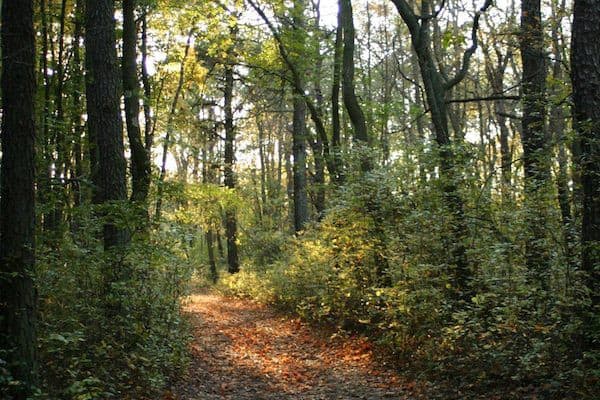
On April 28, April 29 and April 30 locals can join to help plant native Pine Barrens species such as oaks, pines and sweet pepper bush.

Evesham’s Black Run preserve is set to get 550 native trees and shrubs this weekend, and the Friends of the Black Run Preserve is looking for volunteers to plant them.
On April 28, April 29 and April 30, the FBRP is asking supporters to grab their shovels and join its “Restoration Project” where supporters will plant native Pine Barrens species such as oaks, pines and sweet pepper bush, purchased as part of a $5,000 grant from the New Jersey Conservation Foundation.
FBRP Chair John Volpa said the trees and shrubs are just the latest step in the FBRP’s plans to restore portions of the Black Run Preserve that have been affected over the years by manmade roadways and other actions from humans.
“We’re just trying to restore it to its natural state with native plants,” Volpa said.
With Earth Day on April 22, Volpa said the FBRP is trying to get the public more engaged with the Pine Barrens in Evesham Township and what makes the area “special.”
“Hopefully more people start to advocate for it. There’s so much more that needs to be done in the area and so much more infrastructure that’s needed to make it more accessible with trails, parking lots and bridges,” Volpa said.
With the 25 to 40 cars Volpa said he sometimes sees at the Black Run Preserve on the weekends, Volpa said residents might not be aware of the amount of work that falls on volunteers to keep the Black Run Preserve in the condition that it’s in.
“Trails, signs, maps — that’s all volunteers. Those are all reasons why we really need a lot of support from the community,” Volpa said.
In addition to the upcoming tree and shrub planting, Volpa also gave thanks to a group of 40 Cherokee High School seniors who recently planted 1,000 native grass plugs in decommissioned basins once used by the Evesham Municipal Utilities Authority to service the Kings Grant section of town.
Volpa says there are an estimated 60,000 nonnative phragmites in the southern of the two basins that spread in the area due to the effluent water from the MUA, with another estimated 11,000 phragmites in the second, northern basin.
Volpa said the FBRP has been attempting to drive the phragmites out with mowings and herbicides, while also bringing in the native plants to compete.
“What makes the area special is that it’s pristine Pine Barrens land, and we have to keep it that way,” Volpa said.
Those looking to register for the upcoming restoration event can visit the Friends of the Black Run Preserve Facebook page at www.facebook.com/blackrunpreserveteam for exact times and meeting locations, and links to signup and waivers.
For more information about the FBRP, visit www.blackrun.org.









